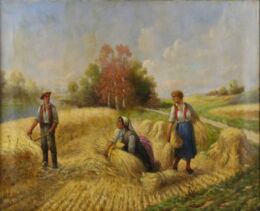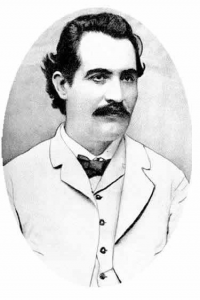The following is editor and publisher Amory Stern‘s Introduction to his collection of previously untranslated essays by the Romanian writer Mihai Eminescu, Old Icons, New Icons. The book is available in both Kindle and paperback editions.
Of peasant ancestry on his father’s side and boasting aristocratic (boyar) maternal roots, the Romanian poet, prose writer, and editorialist Mihai Eminescu (1850-1889) had not put his modest inherited wealth to waste. Educated in the German language since childhood, Eminescu was culturally — if not always geopolitically — an enthusiastic Germanophile. (more…)



